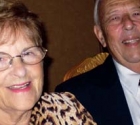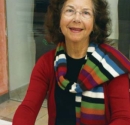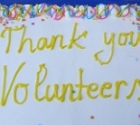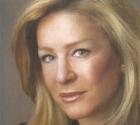
Life in contemporary Israel where I've been living for many years since emigrating from my childhood home in West Orange, New Jersey, is filled with paradoxes, ironies and contradictions. Consider the following:
Some years ago, my mother-in-law, a widow then in her 80's, decided she could no longer live by herself in the family home in Tel Aviv. We helped her move into the nursing wing of an assisted living center near us, where, in the course of time we have become friendly with other families who also have elderly parents in the center. One of our new friends is a hard-nosed Tel Aviv real estate lawyer, whose post-stroke father is in the nursing wing. The parent has lost his ability to speak and freely move his body. The son expresses his devotion in regular visits and warm physical care, patiently talking to his father, never really sure what the elderly man understands.
When we decided to sell my mother-in-law's house and build a new apartment building in its place, it seemed natural to take him on as our lawyer. Through the unfolding stages of the real estate deal, we meet regularly and discuss the many aspects of our rather complicated, real estate transaction. We could have held these meetings in his fancy office at the top of Tel Aviv's tallest building but, in fact, most discussions take place on Friday evenings, when he and we sit with our respective parents around a table in the nursing wing's dining room, other families at other tables all around.
There is a murmur of conversation, a laugh now and then and occasional shouting and crying. Our lawyer gently moves his father to a more comfortable position in his wheelchair, keeps up a one-way stream of conversation, strokes what's left of the elderly man's mussed hair and feeds him warm soup and gefilte fish. I watch my wife do the same with her mother.
And while this is going on we talk about the real estate deal: a bank loan, building permits, construction details, architectural considerations, rising and falling apartment prices in Tel Aviv. Much money is involved, and there is a lot of responsibility, potential pitfalls and anxiety. Probably it would have been better to have carried this out in his somewhat sterile office. No upsetting or heartwarming sights and sounds to interrupt us. But life in Israel is intense, and business is not always conducted by the book.
Last week we all met around the table as usual. At one point, as our lawyer held his father's head in one hand and fed him warm mashed potatoes with the other, he reminded us of an important, upcoming meeting with the building contractor. Gently feeding her own parent, my wife said we'd be there. And we will.
I'd been having some pains in my legs recently and had been sent some weeks ago to a blood vessel specialist who visits our clinic once a week. A handsome, virile young man, he gave me a check-up and referred me for some blood tests. I was pleased with his medical manner and also with the fact that he was an Arab who, as a specialist, was apparently well-placed in the health service. Despite the often catastrophic headlines suggesting that the situation of Arabs in Israel is deplorable, here was a tiny example that things might be otherwise.
A few days later I returned with the results of my tests. I was sitting by myself in the waiting room when a woman came in and sat down. I could tell by her long dress and head cover that she was an orthodox woman of the kind I associate with nationalistic views not particularly favorable to our Arab citizens. She asked if this was the office of the blood vessel specialist. It was her first visit and she'd never met the doctor. I said it was, and she appeared to relax.
A nurse came out and invited me in to discuss the test results with the doctor. He told me they were good, and I was pleased. I then thanked him, went out and told the Orthodox lady it was her turn. Behind her on the wall was a TV for the benefit of waiting patients. It was showing images of American President-elect Barak Hussein Obama, talking with a white-and-black crowd somewhere in the USA. Delight was on all their faces. I watched the lady go into the doctor's office, shutting the door behind her and wondered if their meeting would go as well.
Last week I had a pressing question about the real estate venture I described above. The building contractor had not fulfilled his obligation to get a certain permit from some committee or other in the labyrinth bureaucracy of the Tel Aviv Municipality. Our lawyer friend was not in the office when I called and so I asked for the mobile phone number of his assistant. The young man, not less than his boss, had always guarded our interests. He answered immediately and listened patiently while I explained my problem. In the background, curiously, I could hear muffled booms. They sounded like firecrackers, but there was no holiday that I knew of. I heard the young lawyer shout, "Hey guys, hold your fire!", and the popping noises stopped. Then he went on to answer my real estate question in a most competent manner. When he finished, I asked, "What were those sounds?"
"Oh, I'm in reserves. We're at the shooting range. I told my soldiers to take a break."
I thought of the morning headlines: missiles from Gaza, Hezbullah fighters in Lebanon, a nearly completed atomic bomb in Iran. The young lawyer was indeed guarding our interests. I told him to be careful, said goodbye and asked no more questions that day about real estate.
Eric Moss, PhD. is a Clinical Psychologist who lives in Kfar Saba, Israel, with his wife, four children and a brown Pointer dog. He grew up in West Orange, New Jersey, and immigrated to Israel at the age of 22, many years ago.
 The Bereavement & Loss Program
The Bereavement & Loss Program Thank You Eddie
Thank You Eddie Save One Life, Save A World
Save One Life, Save A World A new website in English - on Volunteering - Launched in Israel
A new website in English - on Volunteering - Launched in Israel Help Needed for Abused Horses and Donkeys
Help Needed for Abused Horses and Donkeys Heather's Heseg
Heather's Heseg Eric Moss
Eric Moss